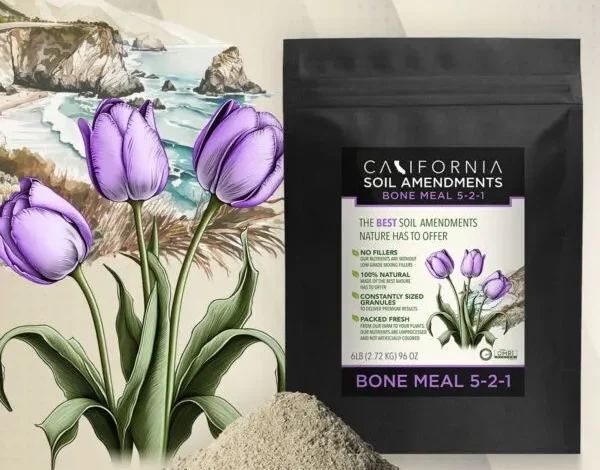
Introduction
When it comes to cultivating a thriving garden, one of the essential factors to consider is soil fertility. While there are various fertilizers available on the market, bone meal fertilizer stands out for its numerous benefits. In this article, we’ll explore the advantages of using bone meal to nourish your garden and promote the healthy growth of your plants.
What is Bone Meal Fertilizer?
Bone meal fertilizer is a natural soil amendment made from finely ground animal bones, typically sourced from cattle. These bones are processed to remove any impurities and then ground into a fine powder or granules. This organic fertilizer is prized for its high nutrient content, particularly phosphorus and calcium, which are vital for plant growth.
Nutritional Benefits of Bone Meal Fertilizer
One of the primary reasons gardeners turn to bone meal fertilizer is its nutritional value. It is an excellent source of phosphorus, an essential nutrient for root development, flowering, and fruiting. Additionally, bone meal is rich in calcium, which helps strengthen plant cell walls and supports overall plant health. Furthermore, bone meal contains trace elements and minerals that contribute to soil fertility and plant vitality.
Promotes Soil Health
In addition to providing essential nutrients to plants, bone meal fertilizer also promotes soil health. Its calcium content helps to neutralize acidic soils, improving soil structure and enhancing microbial activity. By adding bone meal to the soil, gardeners can create an optimal environment for plant growth and root development. Additionally, the slow-release nature of bone meal ensures a steady supply of nutrients over time, benefiting plants throughout the growing season.
Stimulates Plant Growth
Bone meal fertilizer is known for its ability to stimulate robust plant growth. The phosphorus it provides is crucial for energy transfer within plants, promoting vigorous root growth and enhancing flowering and fruiting. Gardeners who incorporate bone meal into their gardening routine often notice stronger, healthier plants with increased resilience to environmental stressors.
Organic and Sustainable Option
For environmentally-conscious gardeners, bone meal fertilizer offers a sustainable and eco-friendly alternative to chemical fertilizers. Made from a renewable resource—animal bones—bone meal is biodegradable and reduces reliance on synthetic inputs. By choosing bone meal, gardeners can support soil health and biodiversity while minimizing their ecological footprint.
Application and Usage
When using bone meal fertilizer, it’s essential to follow proper application techniques to ensure optimal results. Bone meal can be applied directly to the soil or mixed into planting holes before transplanting. It’s crucial to follow dosage guidelines to avoid overapplication, as excessive phosphorus levels can inhibit nutrient uptake in plants. Additionally, wearing gloves and avoiding inhalation when handling bone meal is recommended to prevent potential health risks.
Compatibility with Different Plants
One of the advantages of bone meal fertilizer is its versatility. It can be used with a wide range of plants, including vegetables, flowers, shrubs, and trees. Whether you’re growing tomatoes in your vegetable garden or roses in your flowerbed, bone meal can provide the nutrients your plants need for healthy growth. However, it’s essential to research specific plant requirements and adjust application rates accordingly.
Long-Term Benefits
In addition to immediate benefits, such as improved plant growth and flowering, bone meal fertilizer offers long-term advantages for gardeners. Its slow-release formula ensures a steady supply of nutrients to plants over an extended period, reducing the need for frequent fertilization. By incorporating bone meal into your gardening routine, you can maintain soil fertility and productivity year after year, leading to healthier, more resilient plants.
Potential Drawbacks
While bone meal fertilizer offers many benefits, it’s essential to be aware of potential drawbacks. One concern is the odor associated with bone meal, which some gardeners may find unpleasant. Additionally, bone meal can attract scavengers and pests, such as raccoons or dogs, especially if applied on the soil surface. To mitigate these risks, it’s advisable to bury bone meal beneath the soil surface and secure garden beds with fencing if necessary.
Tips for Using Bone Meal Fertilizer
To maximize the benefits of bone meal fertilizer, consider the following tips:
Mix bone meal with compost to improve soil structure and enhance nutrient availability.
Apply bone meal before planting or during the early stages of growth for optimal root development.
Monitor soil pH levels and adjust if necessary to ensure optimal nutrient uptake by plants.
Common Misconceptions
Despite its benefits, bone meal fertilizer is sometimes misunderstood or misrepresented. One common misconception is that it poses a risk to pets or wildlife, but when used correctly, bone meal is safe for both plants and animals. Additionally, some gardeners may believe that chemical fertilizers are more effective than organic options like bone meal, but studies have shown that organic fertilizers can provide comparable results without harming the environment.
Comparison with Other Fertilizers
When choosing a fertilizer for your garden, it’s essential to consider the differences between bone meal and other options. While chemical fertilizers may provide a quick nutrient boost, they can also deplete soil health over time and contribute to environmental pollution. In contrast, bone meal fertilizer offers a natural, sustainable solution that nourishes both plants and soil, promoting long-term garden vitality.
Conclusion
In conclusion, bone meal fertilizer is a valuable tool for gardeners seeking to nourish their gardens and promote plant health. With its nutrient-rich composition, soil-enhancing properties, and sustainable nature, bone meal offers numerous benefits for both plants and the environment. Whether you’re a seasoned gardener or just starting out, consider incorporating bone meal into your gardening routine to reap the rewards of healthier, more vibrant plants.



